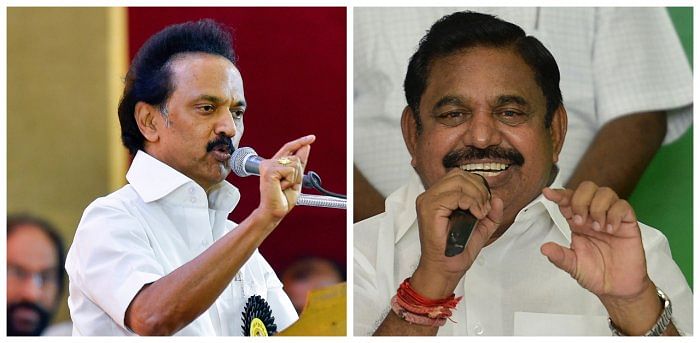
From washing machines and gas stoves to free bus travel, parties in Tamil Nadu are offering loads of freebies in their manifestos ahead of the state's Assembly elections.
The state is known to spend an inordinate amount of funds on sops and often the political motive behind and efficacy of freebies is questioned when it comes to garnering votes.
Most political parties in the states resort to populist agenda-driven manifestos and the doles of freebies given out is often debated and questioned by economists and political scientists.
With late DMK chief M Karunanidhi's 'hero' manifesto of 2006 that had promised free colour TV sets, among others, virtually setting the trend for similar races in the future, Tamil Nadu has seen it all--- free laptops, milch cows, mixer-grinder and gold for thali (mangal sutra) among others.
Kamal Haasan was the first to promise what he called in December last 'payment' to homemakers for their work.
Outlining his party's manifesto, Haasan said facilitation is proposed to be made for homemakers to get suitable opportunities to earn and it does not mean doles from government treasury.
Interestingly, this phenomenon is not new in the state and Karunanidhi was not the first to come up with the idea of giving out freebies. The tradition of promising freebies in manifestos can be traced back to DMK's founder C N Annadurai. In 1967, he introduced a scheme to provide 4.5 kg of rice for just Re 1.
Also Read | Experts flag financial implications over AIADMK, DMK's shower of freebies; doable say parties
AIADMK and DMK's offer of freebies this time around is being questioned due to the state's financial status that has been battered by the Covid-19 pandemic.
Both parties have promised phased prohibition in a state whose coffers are largely filled by liquor sales, even as DMK's ally Congress promised to implement the dry regime soon after the 'new government', apparently headed by DMK, is installed post polls. However, on the economic front, experts feel the new government will inherit the mantle of huge fiscal debt and the onus of balancing developmental programmes and sourcing new funds for poll assurances.
As of March 31, 2020, the state's debt stood at Rs 4.87 lakh crore. It is expected that the state would have a debt of about Rs 5.7 lakh crore in March 2022. With a growing debt burden, economists question how sustainable doling out freebies can be. "Recurring expenditure in the form of implementing the populist schemes may require huge volume of funds and could leave the government hardly any time and resources to devote to other development activities," said K R Shanmugam, director and professor of Madras School of Economics.
(With inputs from PTI)